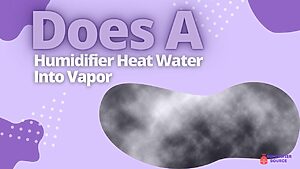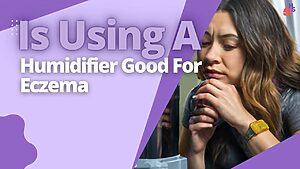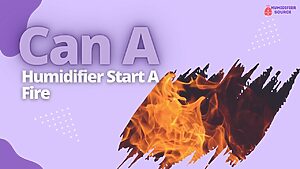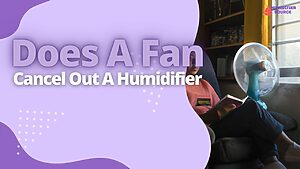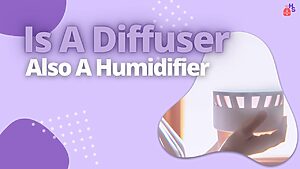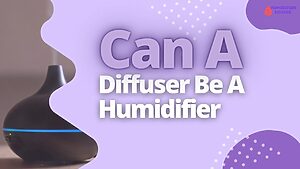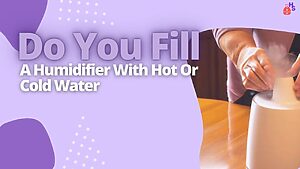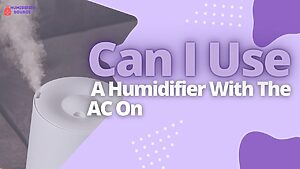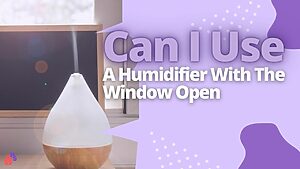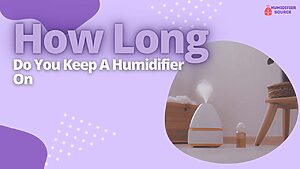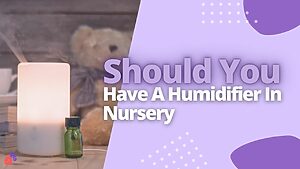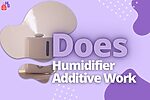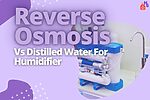You’re not alone if you’re unsure whether you should use distilled water in your humidifier. It’s a common question and one that has a lot of different answers depending on who you ask.
I’m here to set the record straight and give you the necessary information to make the best decision for your humidifier.
So, does a humidifier need distilled water? Read on to find out.
Key Takeaway’s
- Humidifiers do not necessarily need distilled water, but it is often recommended.
- The reason for this is that distilled water is free of minerals and other impurities that can build up in the humidifier over time.
- If you use tap water in your humidifier, it is important to clean it regularly to prevent the growth of bacteria and other organisms.
- Distilled water may also help to extend the life of your humidifier.
- If you have hard water, using distilled water in your humidifier can help to prevent mineral deposits from building up and clogging the machine.
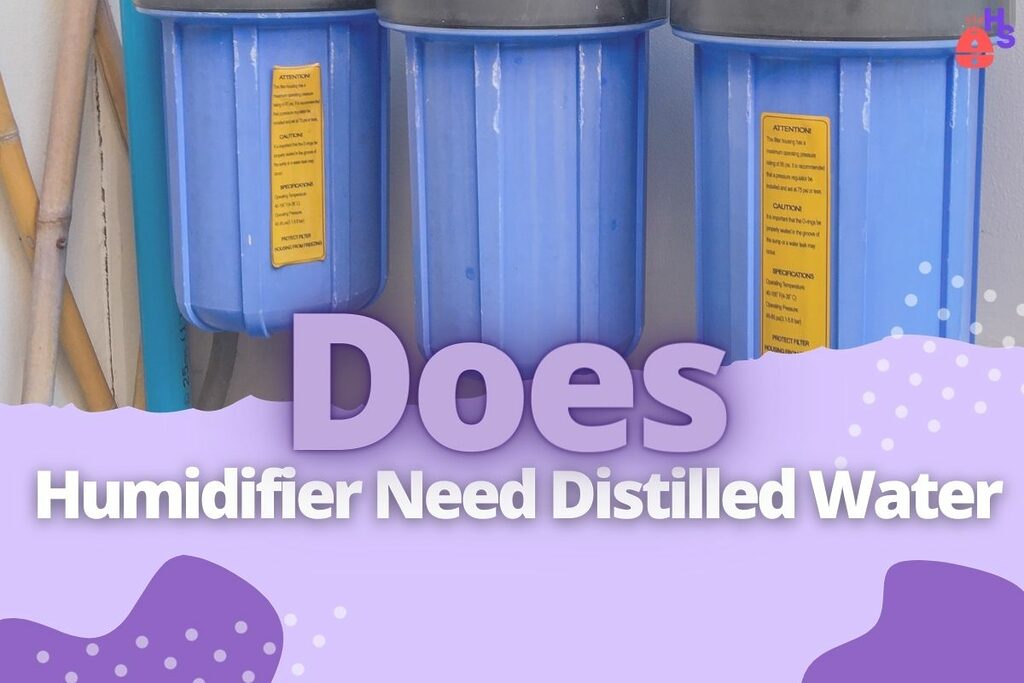
Here’s The Answer To Does Humidifier Need Distilled Water
When wondering if a humidifier needs distilled water, there are many factors to consider. A vaporizer or an evaporative humidifier can raise the humidity or the amount of water vapor in the air.
The type of water used in these devices can affect the quality of the air and the buildup of mineral dust. Boiling water kills microorganisms that may be present in drinking water but does not remove minerals such as calcium and magnesium.
In homes with high humidity levels, these minerals may help white dust to develop. Although more expensive than distilled water, purified water lacks dissolved minerals and contaminants.
Distilled water is made by boiling and then condensing the vapors back into a liquid. This process removes all dissolved minerals from the water, making it ideal for use in humidifiers.
While distilled water is the best option for humidifiers, it is not always necessary. In most cases, tap water will work just fine. However, there are several circumstances where distilled or filtered water is preferable to tap water.
If you have allergies or asthma, using distilled or purified water in your humidifier can help reduce your symptoms by reducing the number of allergens and pollutants in the air.
Humidifiers Do Not Necessarily Need Distilled Water
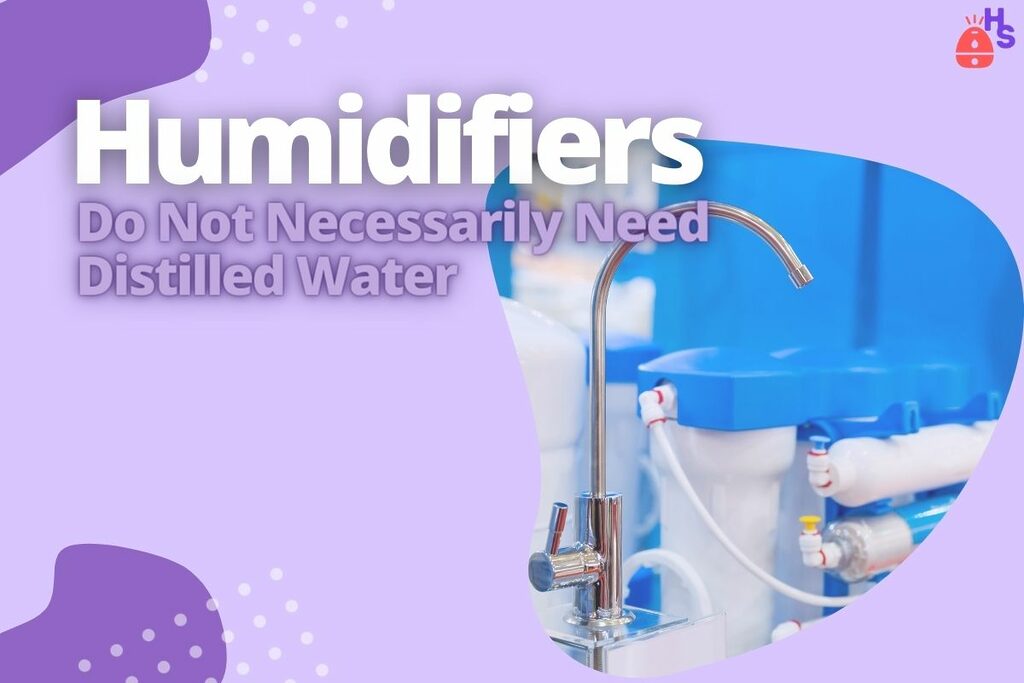
While using distilled water, you’ll be able to enjoy your humidifier for years to come. The reason is that distilled water is free of minerals and other impurities, which can build up over time in the humidifier and cause it to stop working properly.
Using distilled water also reduces the risk of mold and bacteria in your humidifier, improving its efficiency even further.
Distilled Water Is Free Of Minerals And Other Impurities
Minerals and other contaminants that can clog a humidifier’s internal components are absent from distilled water. It can be used in humidifiers without clogging up the internal workings.
Other types of water may not be suitable for humidifiers unless you’re using a purifying system to remove these minerals from your tap water.
If You Use Tap Water In Your Humidifier, You Will Need To Clean It More Often To Prevent Mineral Buildup
You will need to clean your humidifier more frequently using tap water. Your humidifier may get obstructed and unable to function effectively due to the minerals and other contaminants in tap water.
Using distilled water reduces this problem by removing these impurities from the system before they get into contact with any part of your device.
If you decide to use tap water in a steam generator type humidifier (like those made by Vicks), then make sure that you run distilled or filtered water through it at least once daily—preferably every other day.
Distilled Water Can Reduce The Risk Of Mold And Bacteria Growth In The Humidifier
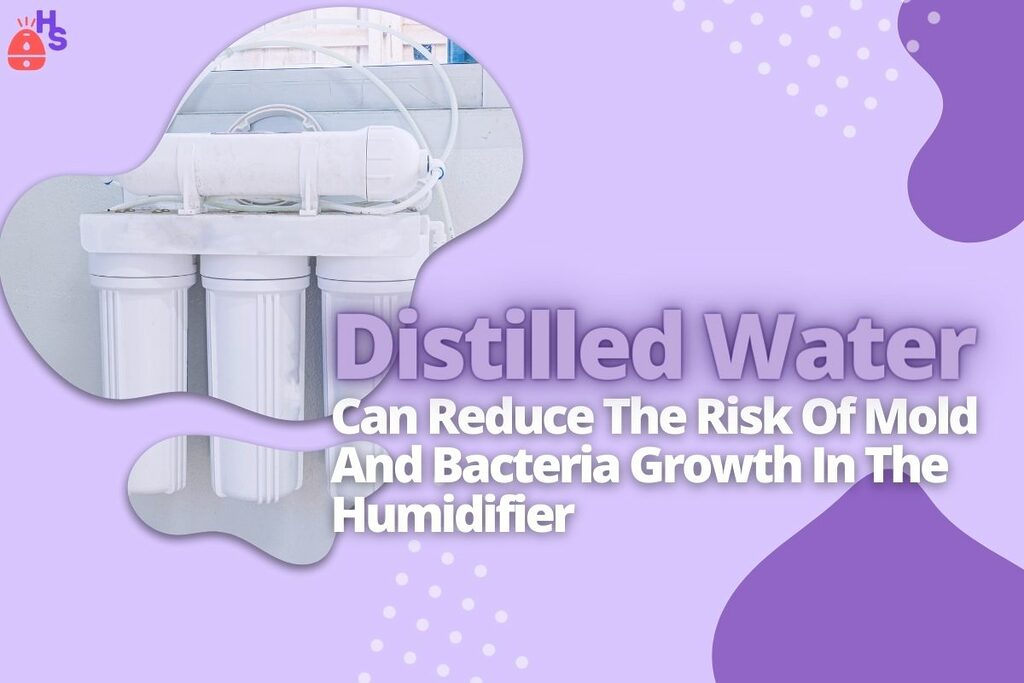
Mold and bacteria can grow in humidifiers that aren’t cleaned properly. These microorganisms can then be released into the air, causing health problems for anyone who breathes them in.
Using distilled water will help reduce the risk of mold and bacteria growth in your humidifier. This is because distilled water doesn’t contain the minerals and other impurities that these microorganisms need to survive.
Distilled water has no minerals that can cause mold or bacteria, while tap water has minerals that can cause both. This means you’ll be less likely to deal with these issues when using a humidifier than regular tap water.
If You Live In An Area With Hard Water, Using Distilled Water In Your Humidifier May Be Your Best Option
Distilled water may be your best option if you live in an area with hard water. This is due to the possibility of hard water leaving mineral stains on your humidifier’s internal components.
These deposits can lead to clogs and other issues that prevent your humidifier from working properly. You won’t have to be concerned about these mineral deposits accumulating and harming your equipment if you use distilled water.
Hard water can clog up the internal workings of the humidifier and reduce its effectiveness. Hard water also makes cleaning more frequent because it’s less effective at removing mineral buildup.
Is Distilled Water Safe To Use In A Humidifier?
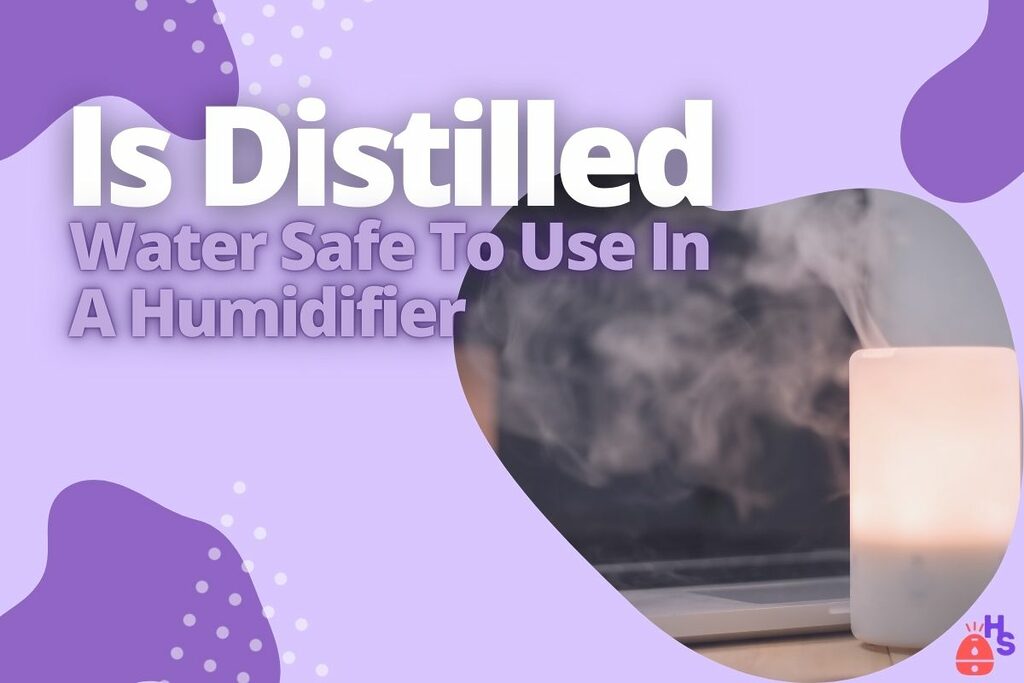
The short answer is yes, distilled water is safe to use in a humidifier. However, it’s important to note that certain humidifiers are designed specifically for use with distilled water, and others can be purchased at any store or online.
Suppose you have a humidifier that wasn’t made for distilled water. In that case, the manufacturer will likely have instructions on changing the filters and cleaning them regularly so they don’t become blocked by minerals or impurities in tap water.
Suppose your home has hard water or other mineral deposits in its pipes. In that case, distilled water may not work well because those minerals will also remain behind when removed from tap water during the filtration process, which could cause clogs if left unchecked.
Can You Use Tap Water Instead Of Distilled Water In Humidifier?
If you’re worried that using tap water might cause damage to your humidifier, don’t be. Distilled water is pure and free of minerals, making it safe for use in a humidifier.
However, there are some concerns about using tap water in your humidifier:
- Tap water may contain bacteria or contaminants that can clog up a humidifier’s filter or cause other problems with the machine itself (such as corrosion). Distilled water does not contain these harmful substances, so they’re not present when you fill up with it!
- Just because something is “clean” doesn’t mean it’s good for humans; many foods contain pesticides and other chemicals that aren’t compatible with our bodies. The same goes for distilled-water tanks: They could have bacteria buildup over time if left unused for long periods without being cleaned regularly.
What Are The Risks Of Using Tap Water In A Humidifier?
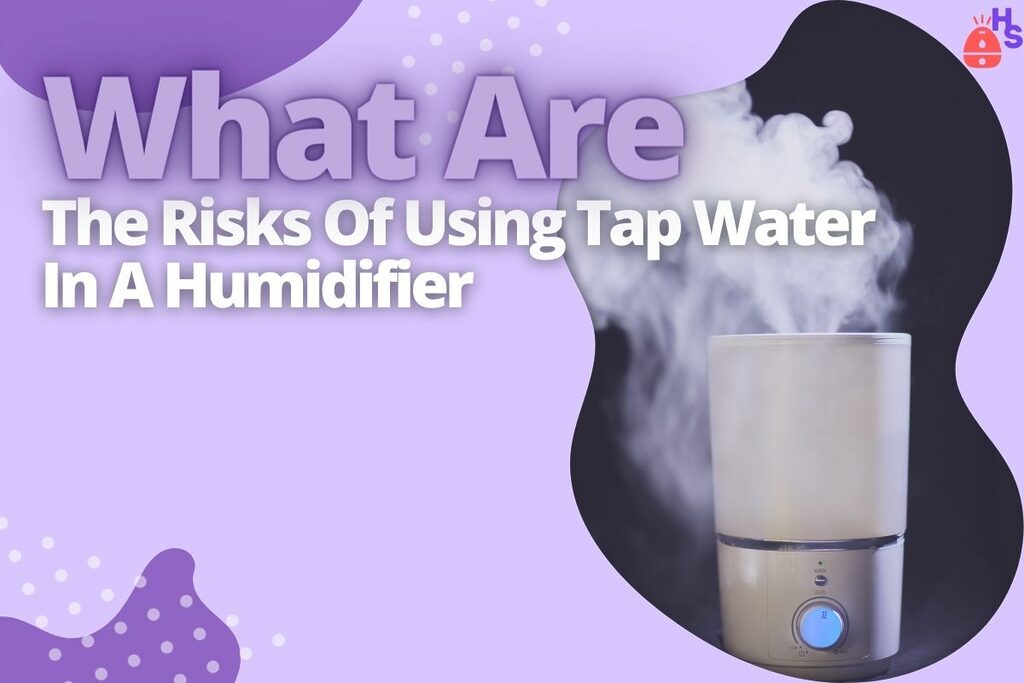
- Tap water contains minerals that can clog up your humidifier.
- Tap water can contain bacteria and mold.
- Water softeners are another potential problem for humidifiers. Water softeners remove minerals from the water supply, which may cause problems for your humidifier if you have one installed in your home or office building. Distilled water is free of these impurities and, therefore, safe to use in a humidifier without risk of clogging or damage being caused by them.
How Does Distilled Water Help To Improve Indoor Air Quality?
Here’s a closer look at how distilled water can help improve indoor air quality and some of the other benefits it provides:
- Distilled water is free of impurities like minerals and chemicals that can be found in tap water. Due to this, it is the perfect option for use in humidifiers and other equipment that disperses water into the air, as it will help to ensure that these devices don’t add any additional contaminants to your indoor air.
- In addition to being free of impurities, distilled water has a lower pH than tap water. This means it can help neutralize acidic compounds in the air, which can contribute to poor air quality.
- Distilled water can also help to reduce static electricity in your home. Because it doesn’t contain any dissolved minerals, it won’t leave behind a residue on surfaces like carpets and furniture that can attract dust and other particles. This can lead to cleaner surfaces and improved air quality overall.
The use of distilled water is a fantastic place to start if you’re searching for a straightforward method to enhance the quality of the air in your house. Not only will it help to remove impurities from the air, but it can also neutralize acidic compounds and reduce static electricity.
Conclusion
Humidifiers are a terrific method to increase the humidity in the air, but if they aren’t maintained properly, they may become a haven for mold and bacteria.
That’s why it’s important to use distilled water in your humidifier to help prevent bacteria and mold growth.
If you’re using a humidifier, clean it regularly and use distilled water to help prevent the growth of bacteria and mold.
And be sure to check our website for more articles on how to keep your home healthy and clean.
Frequently Asked Questions
Is it necessary to use distilled water in my humidifier?
Distilled water is the best type to use in your humidifier because it’s free of impurities and has a lower pH than tap water. This means it can help remove contaminants from the air and neutralize acidic compounds.
Is it safe to use a humidifier with essential oils?
Yes, using a water-based diffuser, you can use essential oils in your humidifier. However, it’s vital to ensure that the essential oil is diluted properly before adding it to the humidifier.
Will tap water work just as well in my humidifier?
No, tap water is not recommended for humidifiers because it contains impurities that can be released into the air. This can lead to health problems, especially for people with allergies or asthma.
Is there a difference between regular and unfiltered distilled water?
Yes, unfiltered distilled water may contain impurities that can be released into the air, so it’s not recommended for humidifiers.
Author
- Does A Humidifier Heat Water Into Vapor (You’ll Be Surprised)
- Is Using A Humidifier Good For Eczema? – Find Out Here
- Keep Safe: Can Humidifiers Cause Fires?
- Humidity Control: Fan Or Humidifier? (Solve The Dilemma)
- Is A Diffuser Also A Humidifier (Discover The Difference)
- Can A Diffuser Be A Humidifier (Discover Now)


